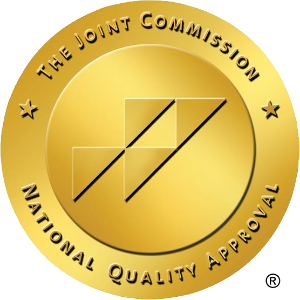When on a journey of recovery just about everything you do feels new, as such, it is important you avoid common triggers so that you can continue on your path to a healthy and happy life.
Triggers look different for everyone but they all share common patterns that you can work to identify and eventually overcome so that you can live a healthy life of sobriety.
Identifying Triggers
Broadly speaking triggers can be categorized into three different types, social, environmental, and emotional. Social triggers are caused by seeing people from your past life of substance abuse, environmental triggers are caused by being in places you frequented during abuse, and emotional triggers can be caused by any number of emotional or mental situations.
All three present different challenges that must be overcome when starting a new life on a journey of recovery, however, emotional triggers are far more volatile and harder to identify so we will focus on those.
Understanding and Working to Control Emotional Triggers
Your brain is a master at self-deception, in fact, everyone’s brain is a master at self-deception. As soon as something occurs, no matter how mundane, you react. As soon as you react your brain creates a reason for your reaction that is meant to justify your behavior. Unfortunately, this still happens when your behavior makes no sense.
Even when you react sporadically due to outside causes your brain still creates a reason for your reaction. The result is you blaming your situation or people around you for a reaction that is entirely within your own control. Often you will blame superiors, working conditions, or life events for a choice that you made in a split second.
Despite this happening to everyone it is something that you cannot stop, but you can work hard to control it.
- Accept Responsibility
In the first moments after you feel yourself reacting to something, it is important to put yourself in a position of power and self-control in your mind. Try not to blame things around you, instead reiterate to yourself that you are the only one who can control how you react and how things affect you.
- Recognize the Emotional Reaction
It is important to pay attention to your body as you react. Your body will tell you what emotion you are experiencing by breathing differently, constricting muscles, or activating a feeling in your gut. When you react and start to feel things you can notice small differences like this and slow down to think. Fighting through the initial fight or flight reaction to an event will help you clear your head and process the situation.
- Identify what Caused The Reaction
Once you determine that you are having an emotional reaction it is vital to determine what has caused that reaction inside you. Usually, your emotions are triggered by the perception that someone is taking away something you value in life.
Often the perception that you are losing respect, understanding, value, freedom, fun, safety, order, or independence will spur an emotional reaction. While these are common ones there are any number of triggers for emotional reactions.
- Choose How You Want to Feel
Now that you have accepted responsibility, recognized how you feel, and identified what caused this feeling, it is now your time to take back control. Choosing how you want to feel instead of letting your body decide how you feel is how you take back emotional control.
Once you decide how you would rather feel about the situation you need to relax and remove tension from your body, clear your mind of thoughts, and focus on how you want to feel. Once you do this you will notice your feelings change and you will find you have more control over the situation. This feeling of control will enable you to react in a more rational way that will not lead to bigger problems down the road.
Following these steps will go a long way in helping you understand and control your inevitable emotional reactions while on a journey to recovery.
Taking Care of Your Self
Putting your body and mind in a healthy place feels like obvious advice, but it provides a huge advantage when trying to avoid triggers. Eating healthy, getting enough sleep, and exercising will put you in a great mental state that will help you deal with your new challenges effectively.
Dealing with these challenges with a clear mind will help you avoid emotional responses that may cause you to relapse.
Surround Yourself Intelligently
With two of the most common triggers being social and environmental it is vital that you spend your time with supportive people in safe spaces. Surrounding yourself with both professional support groups and friends that understand your mission of recovery will go a long way in helping you avoid triggers. Additionally avoiding places that you frequented during your addiction will help you fight back against relapse.
Believe in Yourself
Perhaps the simplest idea but the hardest to achieve in a life of recovery is to believe in yourself. To believe in yourself you must fully forgive yourself for past transgressions and allow yourself to start building self-confidence in a life of recovery.
Even when you identify your triggers, live healthily, and surround yourself with support systems it really just comes down to you believing in yourself. Believing that you can get through a tough patch without your vices, believing you can live a full life of recovery, and believing that you are stronger in sobriety is the only way to successfully avoid your triggers.
Remember you will always have doubts and fears but your self-belief needs to just be a touch stronger than those doubts for you to succeed. You can do this.






